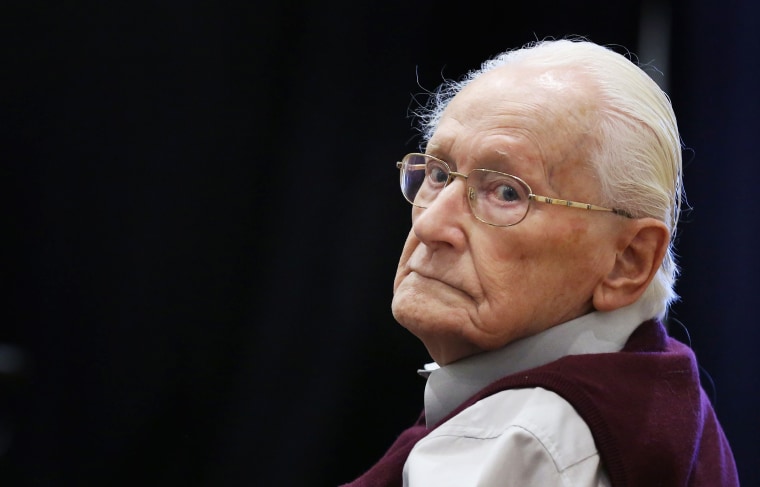BERLIN — A 96-year-old German convicted over his role in the murders of 300,000 people at the Auschwitz death camp in Nazi-occupied Poland has filed a plea for clemency, a regional justice spokesman said on Monday.
Oskar Groening, known as the "bookkeeper of Auschwitz," was sentenced to four years in prison in 2015 for being an accessory to murder at Auschwitz. But he has not yet started his sentence due to a dispute about his health.

In December, Germany's constitutional court ruled Groening must go to jail, rejecting arguments from his lawyers that imprisonment at his advanced age would violate his right to life.
Related: Court rules 'bookkeeper of Auschwitz,' 96, must go to jail
Christian Lauenstein, spokesman for the justice ministry in the northern state of Lower Saxony where the 2015 trial took place, said Groening's plea for clemency had been passed on to public prosecutors.
"A plea for clemency does not have a delaying effect such as on starting the prison sentence," he added.
The public prosecutor's office was not immediately available to comment.
Related: Holocaust Survivors: Why Nazi fugitives must face justice
Groening's court battle was seen as one of the last major trials related to the Holocaust, during which some 6 million Jews were murdered by Adolf Hitler's regime.
Prosecutors said Groening — who did not kill anyone himself while working at Auschwitz — had helped support the regime responsible for mass murder by sorting bank notes seized from trainloads of arriving Jews.
Groening admitted he was morally guilty for the work he carried out at Auschwitz, which included sending bank notes he found in Jews' luggage to SS offices in Berlin, where they helped to fund the Nazi war effort.